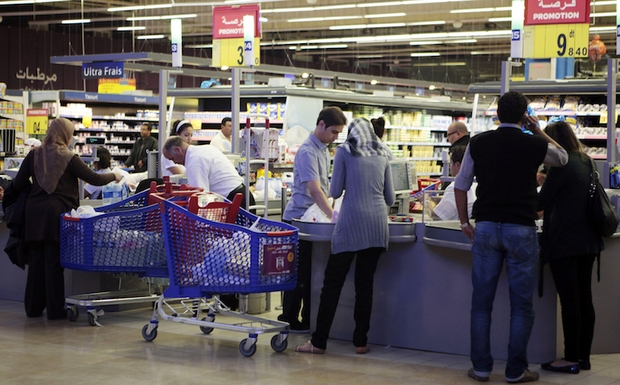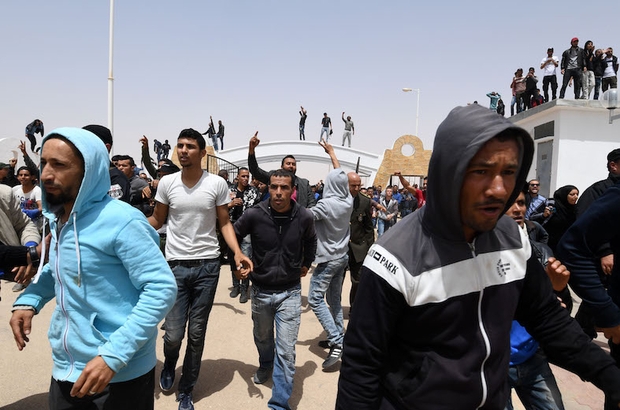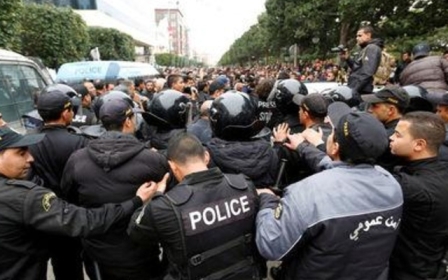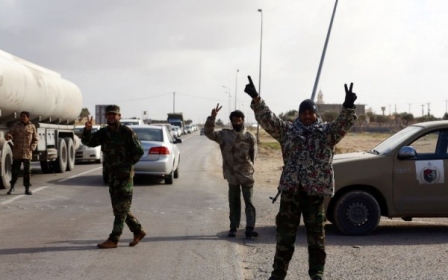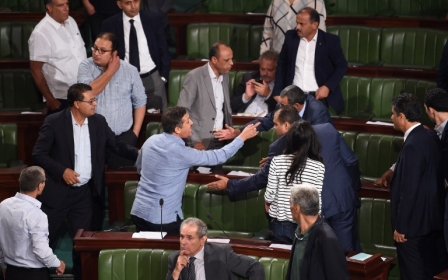Tunisian anti-austerity campaign leader says social contract is broken
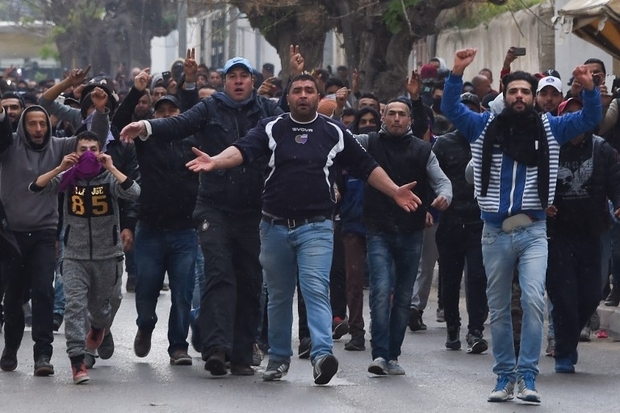
Thirty-three years after violent demonstrations broke out in Tunisia over rising bread prices, a group of young Tunisians gathered earlier this month to launch the Fech Netannew - 'What are we waiting for?' in Arabic - campaign.
Among the group are young people already involved in movements like Manich Msamah (which translates as 'I will not forgive' and protested the law of reconciliation), Hassibehom ('Hold them to account' against police repression) and Manesinakomch ('We haven't forgotten you' for transitional justice).
The campaign called for a demonstration on Sunday in Tunis to protest over rising prices and tax increases that came into effect on 1 January which was dispersed by the police.
'We want to renegotiate the policy of austerity decided by the government'
- Henda Chennaoui, Fech Netannew spokeswoman
"No fear, no terror, the street belongs to the people," they chanted when the police charged.
Since then, several cities in the country have followed suit, holding demonstrations against austerity.
"We want to renegotiate the policy of austerity decided by the government," said Henda Chennaoui, 34, a spokeswoman for the campaign and a journalist, "because it is the poor who pay the highest price this policy."
Over the past three days, protests - which Fech Nestannew did not call for - have been held across the country with more than 300 people arrested on Wednesday evening.
Fech Nestannew is, however, calling for a new protest this coming Friday in Tunis. We spoke with Chennoaui to find out more about what has sparked the campaign and what it is calling for:
Middle East Eye: On Sunday, you called for a demonstration against austerity in Tunis, and several other cities followed you. Did you expect such membership?
Henda Chennaoui: In Tunisia, we are used to the snowball effect. As soon as one region moves, the others follow, because people are convinced that this state reacts only when it is put under pressure.
The situation is worsening from year to year and to this is added the repression, the demonisation of social movements and the increasingly distanced support of the UGTT [central union], the silence of the state, and all this does not contribute to maintaining social peace.
MEE: How does the finance law affect everyday life?
HC: Gas oil has increased by 2.85 percent which has an impact on the price of food. The minimum wage has not changed for years. It is 326 dinars ($131) per month. That equates to about two weeks of groceries for a family of four.
The minimum wage has not changed for years. It is $131 per month. That equates to about two weeks of groceries for a family of four
- Henda Chennaoui, Fech Netannew spokeswoman
To understand the fed-up, we must know that after 2011, a kind of contract was made between Tunisians and politicians. The latter were committed, after the political transition, to satisfy all the demands of the population, especially to improve the economic situation. We waited.
In 2014, nothing happened. In 2015 either, neither in 2016, nor in 2017. The political class showed no sign that it was doing anything. That's why we called our campaign 'What are we waiting for?'.
MEE: Since 2011, civil society and NGO reports are alarmed by the gap widening between the richest and poorest Tunisians. What is the social reality?
HC: This gap already existed before. If Mohamed Bouazizi [young street vendor who is credited with triggering the Tunisian revolution] immolated himself, if Ben Ali fled, it is precisely because of this gap.
But since 2011, it has widened: today, there is not a family that does not know an unemployed or working parent, but [working] in the informal sector. There is no longer a middle class and there is no hope of getting out because another complex problem is grafted on poverty: corruption.
A young graduate, who wants to open even a business, has to wait several years to pay a bribe that will allow him to have access to the banks or the administration, which in turn, will put sticks in the wheels. Only people close to power can succeed.
After 2011, the upper middle class became extremely wealthy. But the lower class, it has not gained any advantage, whether in terms of purchasing power, access to resources, education or health.
MEE: 2017 saw the convergence of socio-economic demands and demands for better governance. How do you explain it?
HC: Since 2011, the main demand of all social movements has been for work. They masked other claims against corruption or nepotism.
In Kasserine in 2016, for example, young people who were holding sit-ins had a list of people they said were corrupt and they demanded the departure of the governorate.
But in 2017, we mainly saw the mobilisation of areas of Tunisia that had never previously demonstrated. And among them, coastal regions, as in Mahdia, rather known for their wealth.
MEE: The government has adopted austerity measures to get IMF money. What alternative do you propose?
HC: Our goal is for the state to adopt a coherent economic model where it would play its role in the public interest. That's not the case today.
Let's take an example: the national banks have decided to cancel all the debts of the tourism sector to support it after the attacks. The hoteliers chose to keep foreign currency outside Tunisia until the dinar loses value to earn more money. This is proof that things are not decided in the interest of Tunisians.
We also see that there is resistance to economic reforms. A law would have had to have been passed to reform the transactions, with a view to better traceability. And the parliament voted against it.
But the economic crisis is not inevitable, it is simply the result of bad governance.
This piece originally ran on MEE's French website.
Middle East Eye propose une couverture et une analyse indépendantes et incomparables du Moyen-Orient, de l’Afrique du Nord et d’autres régions du monde. Pour en savoir plus sur la reprise de ce contenu et les frais qui s’appliquent, veuillez remplir ce formulaire [en anglais]. Pour en savoir plus sur MEE, cliquez ici [en anglais].


